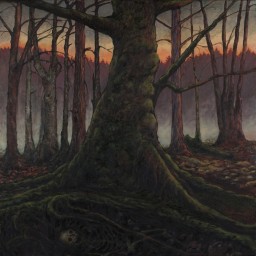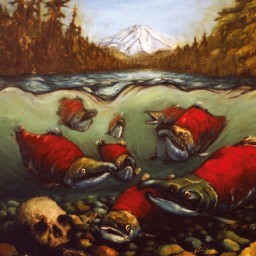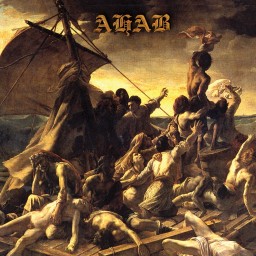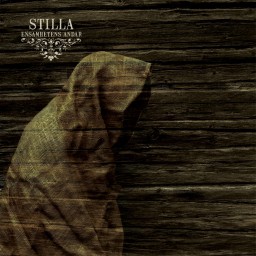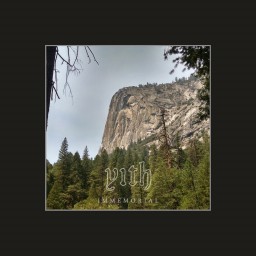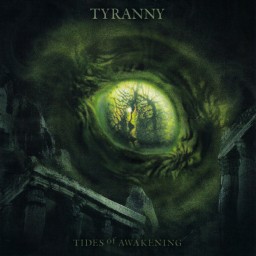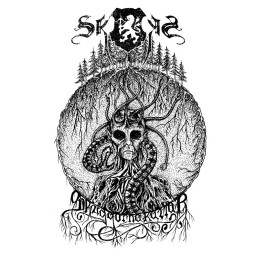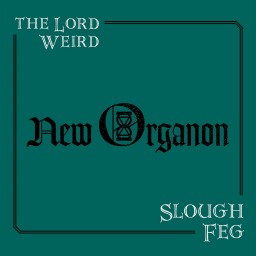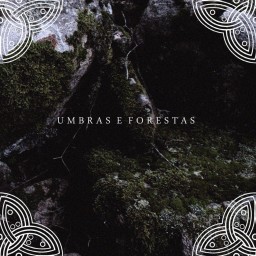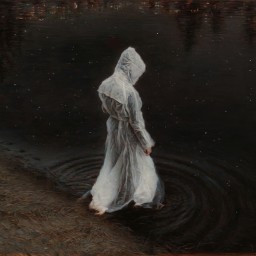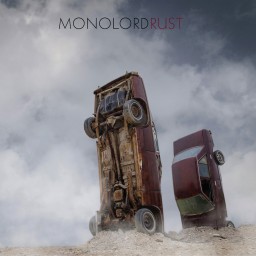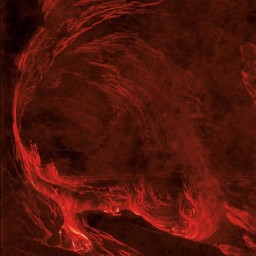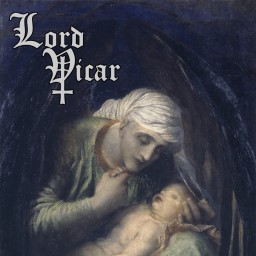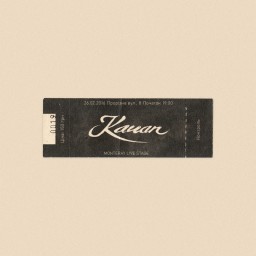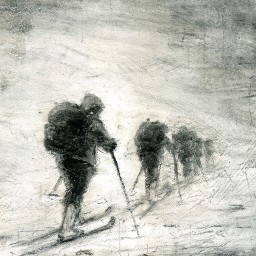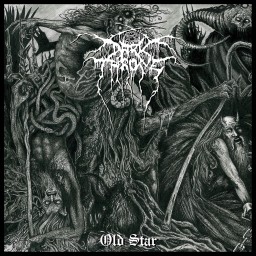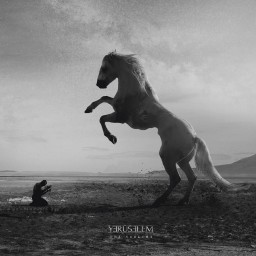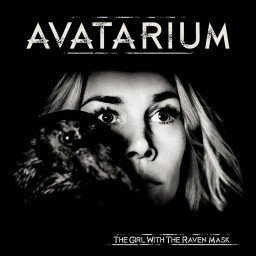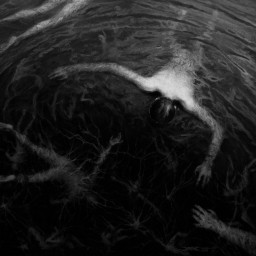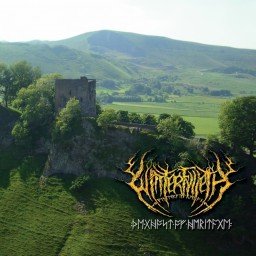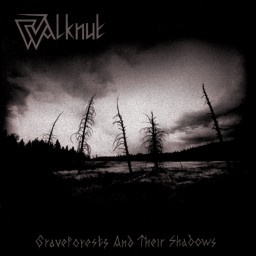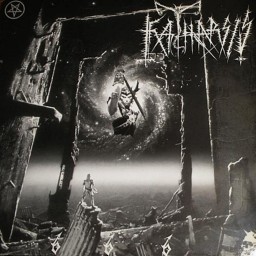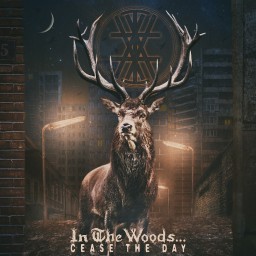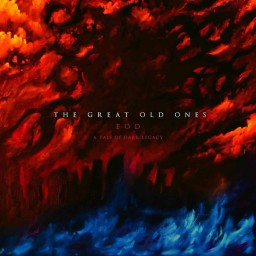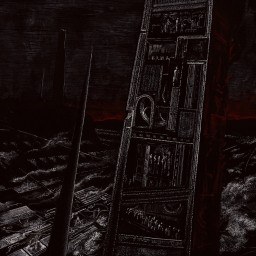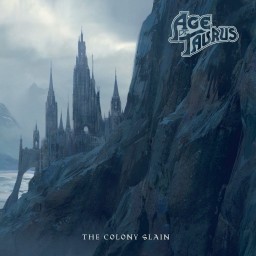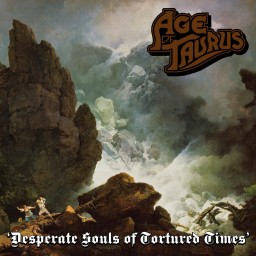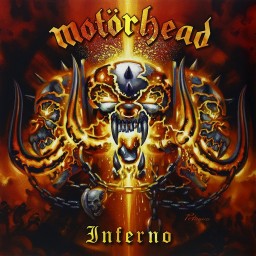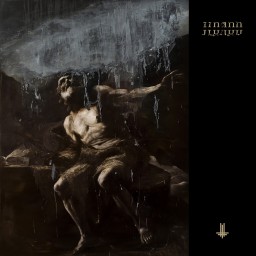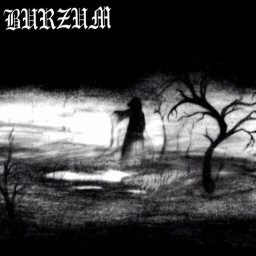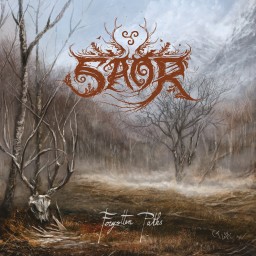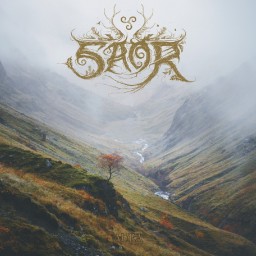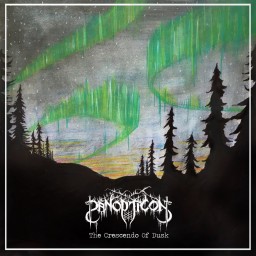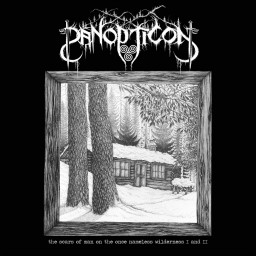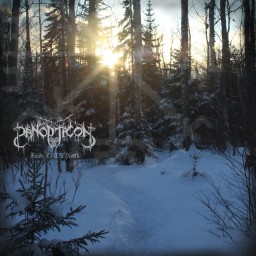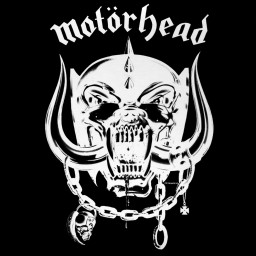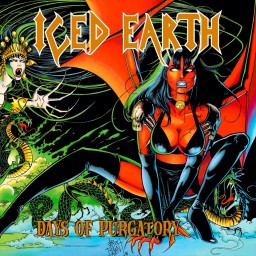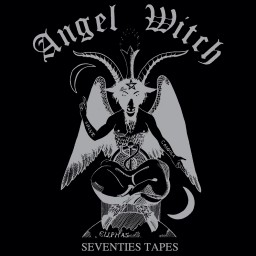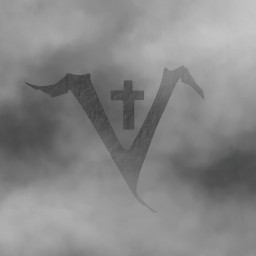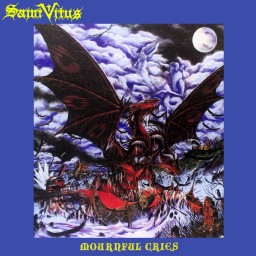Sonny's Reviews
This follow-up to 2011's Tahoma is another triumph of US nature-themed black metal. The songs segue effortlessly from pastoral folk-influenced acoustic passages to blistering BM, evoking the dual-faced spirit of the natural world, in both it's beauty and brutality. Impressive.
Genres: Black Metal
Format: Album
Year: 2015
Atmospheric Black Metal is one of my favourite musical genres when done well and here Alda do it very well indeed. Like compatriots Panopticon, Alda manage to conjure up visions of forests, streams and mountains in the mind's eye using only basic black metal instrumentation (with the occasional acoustic supplementation) and a whole lot of skill and imagination. The tracks on offer here are just so well done that you never even notice how lo-fi it all is, either. Excellent stuff and if you're at all interested in USBM then check it out.
Genres: Black Metal
Format: Album
Year: 2011
Ahab's second album and follow-up to Call of the Wretched Sea is not as relentlessly crushing as that monstrous classic of funeral doom, the atmosphere relieved by passages of lightness with cleaner vocals and softer acoustic sections and although I understand the band's wish to develop, for me, this is a step down from the debut and a dilution of their sound. Don't misunderstand, this is a very good album and when the band do lay on the heavy funereal dirges, then they are still able to crush the air from your chest with a mountain of sound, it's just that I wanted more of that!
Genres: Doom Metal
Format: Album
Year: 2009
This second full-length album from Sweden's Stilla, takes an avant-garde sound similar to the kind of things Ihsahn did on his first few solo records and forces it into a more straightforward black metal template. The resulting dichotomy makes for an original voice in the crowded BM scene. It's refreshing to hear a band doing something a little different and not just rehashing old Mayhem or Darkthrone riffs or wandering into the overcrowded realm of atmospheric BM. I must admit, I wasn't initially gripped, but give it a chance, as I think it's an album that rewards patience and just gets better with each subsequent listen as it's complexity is unravelled. It may not be completely successful 100% of the time, but credit the band for having the integrity to play music they believe in.
Genres: Black Metal
Format: Album
Year: 2014
My two favourite music genres are doom and black metal and nobody combines the two better than Yith. Throw in a Lovecraftian bent to the lyrics, musing on long-abandoned ancient ruins and unseen lurking terrors and the result may be my perfect album. A bleak and hopeless contemplation on the insignificance of man's existence in a universe that measures the passage of time in eons.
Was and still is, my Album of the Year for 2018.
Genres: Black Metal Doom Metal
Format: Album
Year: 2018
Huge, heaving swells of sound, a growling, gurgling voice from the oceans very depths and the huge malevolent eye staring from the album's cover can only really point to one theme - the emergence of the dread lord Cthulhu from deep within R'lYeh and the impending destruction of all mankind. At once conveying both the crushing pressure of the sea depths and the expansiveness and sheer mind-destroying scale of the inter-stellar spaces, there are few better examples of a real atmosphere of iminent and inescapable doom. The final ambient track, Entreaties to the Primaeval Chaos finishes the album perfectly, documenting the ritual chant to raise man's nemesis and his answering stirrings. All in all this is a true classic of funeral doom that has few equals.
Genres: Doom Metal
Format: Album
Year: 2005
Skogen are yet another band of a growing number, who are breaking out of the artificial genre confines imposed on them by metal's conventions. Their nature-themed, atmospheric black metal sound has been expanded with elements of folk, progressive and doom metal. This can only be a good thing for extreme metal as we are spared endless regurgitation of the same basic concepts and can once more look forward to new releases with a genuine excitement and anticipation.
Genres: Black Metal
Format: Album
Year: 2018
One of the best trad metal albums I've heard in absolutely ages, as we should probably expect from a band with this kind of pedigree. Their uniquely off-the-wall sound certainly helps set them apart from the rest of the herd. Let's hope that what bands like Slough Feg and Smoulder are doing heralds a new Golden Age for traditional heavy metal.
Genres: Heavy Metal
Format: Album
Year: 2019
I love DoN's take on the atmospheric black metal genre and bought this after hearing their 2015 album Umbras de Barbagia. This EP is an excellent precursor to that absolute classic of an album and one I would recommend to any lover of Cascadian Black Metal in the vein of Wolves in the Throne Room.
Genres: Black Metal
Format: EP
Year: 2014
A hefty dose of swedish "true" doom that is as understated as it is intense. The six tracks are driven by a super-solid rhythm section, on which the disembodied vocals and sometimes crushing, sometimes airy, guitar work of Thomas Jäger are hung. To sound so heavy, seemingly so effortlessly, is a real achievement, like watching a genuine artist painting a masterpiece and thinking "Fuck, I wish I could do that". Impressive.
Genres: Doom Metal
Format: Album
Year: 2015
With a lighter production job and a couple more psych moments, this is not quite as ball-crushingly heavy (and awesome!) as previous album, the high-watermark Vaenir, but still a very good slab of Scandi-True-Doom from one of it's primary proponents.
Genres: Doom Metal
Format: Album
Year: 2017
An impressive debut release by this Icelandic black metal outfit. The ambitious songwriting and excellent musicianship remind me of 1990's Enslaved, with an almost progressive feel to some of the tracks. Saying that, they can also let rip with some good old black metal fury, as evidenced on the opener Songur Heiftar. Definitely a band to keep an eye on.
Genres: Black Metal
Format: Album
Year: 2015
Lord Vicar are one of the "Guardians of True Doom", featuring ex-members of Reverend Bizarre, Revelation, Count Raven and Saint Vitus and this is their best album to date. Kicking off with the seventeen-minute epic, Sulphur, Charcoal and Saltpetre, this goes on to deliver 70 minutes of ass-kicking, gut-crunching doom metal that could level entire city blocks! Powerful and mournful, this is classic scandinavian doom metal.
Genres: Doom Metal
Format: Album
Year: 2019
This live recording features complete reproductions of two of Kauan's recent albums, 2013's Pirut and 2015's superb Sorni Nai. The musicianship and sound recording are excellent, as is the source material and I do love a good live album, but I can't really imagine why you would particularly listen to these versions over the studio originals. It does perfectly illustrate what an accomplished band Kauan are, though, as the performance is pretty much faultless.
Genres: Doom Metal
Format: Live
Year: 2017
Haunting and atmospheric Post-rock from Russia, in the form of a concept album telling the story of the Dyatlov Pass incident - the mysterious disappearance of a group of hikers in the Urals in the. 1950's. This really is an excellent album, encompassing aspects of doom, black metal and softer instrumentation, in particular a beautiful and affecting piano sound that is woven through the majority of the album and even, for me anyway, leaves a more lasting impression than the louder more "metal" aspects of the album. A real triumph of multi-layered, thoughtful music and a definite must-hear.
Genres: Post-Metal
Format: Album
Year: 2015
While Darkthrone retain the roots of their black metal origins, they don't release out and out black metal albums anymore (nor have they for a very long time). Their latest, Old Star, sees them move into more doomy territory. Sounding like a cross between Bathory and Black Sabbath they have unleashed some of their best riffs in ages. A mention must also go to the meaty production job on this album, producing one of the best-sounding albums of their career (and which also suits the more doomy material on offer here).
Genres: Black Metal Heavy Metal
Format: Album
Year: 2019
Blut aus Nord are a band I enjoy, yet strangely haven't listened to anything like enough, so I come to this side project of BaN's Vindsval (admittedly drawn to it by Dehn Sora's enigmatic cover art), not really sure what to expect. What I got was an album of intelligent industrial post-metal that does seem to justify it's existence as a side project release, whilst still retaining the influence of the band that spawned it.
Genres: Industrial Metal
Format: Album
Year: 2019
This is a little overblown for my taste. Vocalist Jennie-Ann Smith seems more suited to a gothic metal band in the vein of Within Temptation or Nightwish than a doom outfit, her voice sounding too theatrical. Maybe Leif Edling wanted a female Messiah Marcolin for this band, but I don't think it works particularly well. Don't get me wrong, this album has some good moments, particularly during the more psych passages and some decent enough songs but, for me, it just misses the mark.
Genres: Doom Metal
Format: Album
Year: 2015
A blackened death assault that hits like a jackhammer to the sternum. I prefer my death metal a bit looser and more old-school, but if you're into intense and aggressive modern DM then this may be right up your street.
Genres: Black Metal Death Metal
Format: Album
Year: 2019
This is probably my all-time favourite pagan / atmospheric black metal album, from England's best black metal band. The music is stirring and epic and speaks of ancient battles, majestic peaks and mist-shrouded fens. Winterfylleth have put out some great records in the past decade, but this, their debut, still stands, like an ancient druidic standing stone, as their finest monument to England's long-forgotten history.
Genres: Black Metal
Format: Album
Year: 2008
Walknut were the brainchild of Anton Svyagir (aka StringsSkald) who is a Russian multi-instrumentalist that has been a member of a number of bands including stoner doom outfit Old Sea and Mother Serpent. Inexplicably, Graveforests and Their Shadows is Walknut's only release and as the status of the band seems to be "defunct" it is likely to remain so. I say "inexplicably" because, as an example of atmospheric black metal, this is just so fucking good!
Graveforests.. is a black metal album that heavily relies on it's recreation of an icy and frigid atmosphere. Here that atmosphere is everything as there is actually very little else going on - and I don't say this as a criticism - but the songs are fairly simple affairs that rely on repetition and the layering of the raw, distorted guitar sound to create the required effect. For me the simplicity of the songs isn't a failing, but is actually the album's strength, allowing the atmosphere to become key. Where others feel the need to inject their songs with arbitrary tempo changes, sudden folk-driven interludes or shoegazey ambient breaks, Walknut hold their nerve and just allow the frigidity of the tracks to envelop and ensnare the listener like a winter blizzard. StringsSkald's vocals take the form of ragged shrieks in a similar vein to many DSBM vocalists, but here they pierce the frostiness of the music with a yet colder desperation that deepens the intensity of the frozen atmosphere. Walknut's is a world of black and white and a numbing iciness that is almost unbearable to a mere fragile human, similar to the musical world of Paysage d'Hiver, and is not one that should be entered into lightly. Personally, I love this stripped down style of atmo-black which can trace it's roots back to some of the earliest Burzum recordings and Graveforests and Their Shadows is an album of particular quality in this frostiest of sub-genres.
Genres: Black Metal
Format: Album
Year: 2007
Genres: Black Metal
Format: Album
Year: 2000
Much like previous release, Pure, this is progressive metal forged from elements of Doom and Black metal. Similar in sound to Vertebrae / Axioma-era Enslaved.
Genres: Progressive Metal
Format: Album
Year: 2018
As you can probably tell from the name, The Great Old Ones are a band who's atmospheric black metal is usually Lovecraftian themed and based around the Cthulhu Mythos. This is again the case on this, their third full-length release. Their brand of quite aggressive atmospheric black effectively suggests the gibbering insanity of the minds of Lovecraft's gods of madness and the vocals have an intangible quality, as if heard echoing from the dark void between worlds. Of course, ultimately it's all about the music and even if you have no interest at all in Lovecraft's tales of horror, this is still a damned fine album.
Genres: Black Metal
Format: Album
Year: 2017
Apparently this album, with it's 1984-ish dystopian concept has kicked off a shitstorm on comments sections everywhere, with accusations of nazism being thrown at the band. I'm not really familiar enough with them to judge, but from what I've heard it seems like they have at least one pretty reprehensible member. Leaving all that aside, however, musically this is excellent, progressive BM that is both exhilarating and demanding. Recorded live in the studio with plenty of changes of pace, it is an impressively complex, multi-layered piece of music. Probably best taken as a whole it feels more like a suite than an album of separate tracks. Recommended for any fan of modern, intelligent black metal who isn't too phased by controversy in their black metal (and let's face it, if you love black metal you're probably familiar with at least some level of controversy in music).
Genres: Black Metal
Format: Album
Year: 2019
Very consistent traditional doom metal - not as awesome as their debut album, but there's plenty to enjoy here for devotees of the epic side of doom metal - particularly tracks like The Lost Garrison and the galloping Beyond the Westward Path.
Genres: Doom Metal Heavy Metal
Format: Album
Year: 2018
Great album of meaty trad doom that reminds me why I got so into this music in the first place. Epic-sounding songs, amazing riffs and vocals that will never be considered great, but fit the music so well. There's also a nice trade-off between the melodies and the heaviness that results in a more positive sounding album than is maybe usual in doom.
Genres: Doom Metal
Format: Album
Year: 2013
2004's Inferno is, in my opinion, Lemmy & co's best album since the classic lineup of Fast Eddie and Philthy Phil passed into metal legend. It may be the heaviest album they ever produced with Lemmy and Mickey Dee on fine form. However, the most striking aspect is Phil Campbell's searing guitar work, possibly the best a Motörhead guitarist has ever sounded on record.
F**k, I miss these guys!
Genres: Heavy Metal
Format: Album
Year: 2004
I've got to confess to being somewhat disappointed in this release from the polish death metal titans. It seems to have lost something in the over-polished (no pun intended!) production. Just doesn't grab me like it should.
Genres: Black Metal Death Metal
Format: Album
Year: 2018
Varg Vikernes is one of the most controversial characters in metal, but he most definitely produced one of the two best black metal albums ever made (ironically, the other being De Mysteriis) with the most anguished-sounding vocal performance you will ever hear. Even if you consider Burzum the artist seperately from Vikernes the man, the question that then remains is, could anyone else have released such an angst-filled, desperate sounding record that reaches right into the darkest, bleakest reaches of the human soul? Probably not, after all, if you want an insight into what it is to live in hell, then you don't ask someone who lives in heaven, do you?
Genres: Black Metal
Format: Album
Year: 1992
Truly epic celtic-tinged black metal from the supremely talented Andy Marshall. A little less airy and more down-to-earth than his previous releases, but still superb. Featuring guest vocals from Alcest's Neige on opener Forgotten Paths and the heavenly-sounding Sophie Rogers on Bròn (along with bagpipes from Kevin Murphy) this is Saor stretching out and in the aforementioned Bròn we may arguably have Saor's tour-de-force.
With amazing artists like Andy Marshall and Austin Lunn, the oft-derided black metal solo act is really showing what is possible if you have the talent.
Genres: Black Metal
Format: Album
Year: 2019
With this, the follow up to his brilliant debut, Roots, Andy Marshall cements Saor's position as one of the premier Pagan / Atmospheric Black Metal bands. Comprising five lengthy BM soundscapes that conjure up scenes of a celtic warband running to battle across wind-blown Caledonian moorlands, that are at times blistering and at others hauntingly poetic. An absolute triumph of the genre and one of the best albums of 2014.
Genres: Black Metal
Format: Album
Year: 2014
This unexpected ep from Austin Lunn features a couple of tracks left over from his previous two albums that he has released as a tribute to the magnificence of the northern lights. The Crescendo of Dusk is from the Scars.. sessions and is a thirteen minute track of Panopticon's trademark soaring, life-affirming atmo-black that is every bit as good as the tracks on that album. The Labyrinth is from the Autumn Eternal session, but sounds like it should have been on Scars Part II as it's a serene acoustic folk track with virtually spoken clean vocals. This is an indicator of just how dominant Panopticon are when a couple of left-over tracks wipe the floor with nearly every other effort from the nature-black metal scene.
Genres: Black Metal
Format: EP
Year: 2019
Austin Lunn is possibly the premier exponent of atmospheric black metal currently (certainly in North America) and this release is a real event in the scene. The first album, of this two-album set, showcases Panopticon's usual flawless take on the genre.
The second album of this double release expands on Austin Lunn's obvious love of his roots music - bluegrass and american folk. As with everything else this guy touches the songs are great. The only reservations I have are that the folkier songs expose the (minor) shortcomings in his vocals.
Genres: Black Metal
Format: Album
Year: 2018
Stunning modern black metal album. Way more variety to the record than we have come to expect from the genre. From blistering Atmospheric BM to bluegrass banjo picking to acoustic ballad, this is an album of real contrasts and a very welcome addition to an, at times, over-conservative genre.
Genres: Black Metal
Format: Album
Year: 2014
This is the album where Lemmy announced his transformation from mere crew member aboard the space ship Hawkwind, to all out metal overlord of battle station Motorhead. Where his audience had shifted from the acid-dropping, pothead hippies that worshipped his former band mates, to the speed-loving and bourbon-drinking outlaw fraternities of bike gangs and renegades. For proof you need look no further than the title track and particularly The Watcher, two songs Lemmy wrote and recorded with Hawkwind. Here they appear as, I imagine, Lemmy always envisioned them, stripped of space rock pretensions and presented in raw, undiluted loud and dirty rock'n'roll form. As the rock press were fond of quoting at the time (from Philthy Phil, if I'm not mistaken), " if Motorhead moved next door to you, then your lawn would die!"
But, on a personal note, this is the album that made me realise that I had found MY band and, in Lemmy, someone in the music world who could genuinely be looked up to and admired for their integrity and attitude. So long, man, and thanks for all the great memories... Ian "Lemmy" Kilmister RIP
Genres: Heavy Metal
Format: Album
Year: 1977
I love this album, almost as indispensible a thrash release to me as Master of Puppets or Reign in Blood. Re-recordings of most of IE's early catalogue with superior singer Matt Barlow on vocals. An awesome hybrid of classic-era Metallica and Judas Priest, this and follow-up Something Wicked This Way Comes mark the high water mark for the band. After that IE descended into power metal cheesiness and irrelevance. Luckily this will always stand as a monument to how great Iced Earth could be.
Genres: Heavy Metal Power Metal Thrash Metal
Format: Compilation
Year: 1997
Angel Witch are one of my favourite bands of the NWOBHM era. They were taken under Lemmy's wing and supported Motorhead many times in the late 70's and early 80's, when I was fortunate enough to have seen them live five or six times. Their debut is still one of my favourite albums and, in my opinion, their contribution to the original Metal for Muthas LP, Baphomet, was the stand-out on that album (up against a brace of Maiden tracks).
These super-raw demos are a great insight into the early days of the band and are worth getting to hear just how exciting they were back in the day.
Genres: Heavy Metal
Format: Compilation
Year: 2017
Saint Vitus are back, reunited with original vocalist Scott Reagers and with a new bassist, Pat Bruders, four-string-wielder with Down. Personally, I prefer Wino's voice to Reagers' but that doesn't mean that Scott is a poor singer, on the contrary, his vocals still suit Saint Vitus just fine. I love Dave Chandler's guitar sound and it kicks right in on opener, typical St.V doomfest Remains and all seems fine with the world. There's a nice variety to the nine tracks on offer, old-school doom like the aforementioned Remains, Wormhole and Last Breath, a quite, gentle track with Reagers singing about some kind of torturous hell, which then leads into a couple of quicker, ass-kicking heavy metal tracks in Bloodshed and 12 Years In The Tomb, the bluesy Hour Glass, creepy-sounding City Park and the hardcore punk of closing track, Useless (yes, that's right, I said hardcore punk!) A common factor to a number of the tracks is that several feature a psychotic-sounding lead break and overall the band feel more aggressive than usual, but this is a solid album and a sigh of relief can be breathed all round by those who give a damn about doom metal and one of it's stalwarts.
Genres: Doom Metal
Format: Album
Year: 2019
On their first five albums Saint Vitus were the masters of the old showbiz adage of "leave them wanting more", with their albums typically clocking in at only about 35 minutes. This is the shortest (32 mins) and, in my opinion, their best. There's no superfluous noodling or padding out (a trap too many Doom bands fall into), just half a dozen absolutely top quality tracks of Traditional Doom, complete with Wino's unmistakable, whiskey-soaked vocal delivery that is absolutely perfect for this style of doom. A track like Bitter Truth gets me every time, so slow and crawling that it gives me a feeling like an icy hand creeping up my spine every time I hear it.
Received wisdom is that the previous albums are better, but I disagree - where Saint Vitus are concerned, THIS is the shit!
Genres: Doom Metal
Format: Album
Year: 1988










